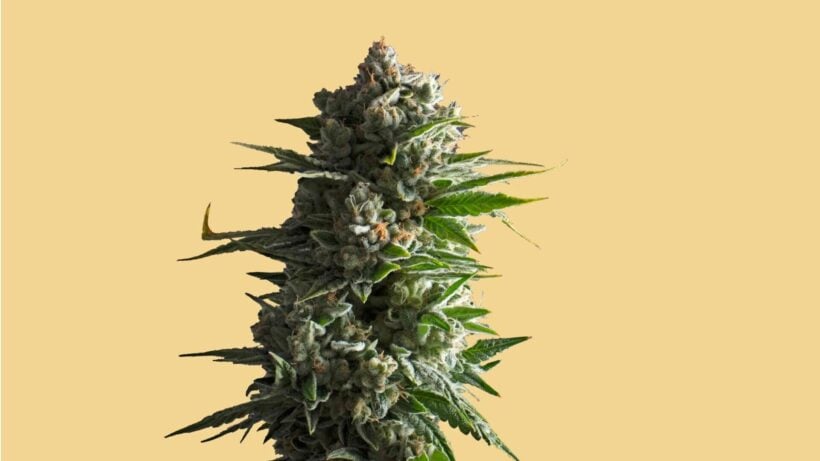Cannabis in Thailand: A Guide for Tourists

Thailand’s crazy cannabis laws can be difficult to navigate so the Ministry of Public Health has issued a guide titled “10 Things Tourists Need to Know About Cannabis in Thailand” to help budding cannabis tourists stay out of trouble.
Since the marijuana plant (“Gancha” in Thai language) was removed from Thailand’s list of Category 5 Narcotics on June 9 this year, Thailand became the “Amsterdam of Asia” with cannabis dispensaries and stores popping up all over the kingdom.
Public Health Minister Anutin Charnvirakul said the decriminalisation of cannabis is purely intended for medical use and to create economic opportunities for the Thai people.
The empty statement was not substantiated by legislation that would prevent the recreational use of cannabis, which to no one’s surprise, has skyrocketed.
Cannabis is a “controlled herb,” meaning that it cannot be sold to anyone under 20 years old, cannot be sold to pregnant or breastfeeding women, and cannot be sold via vending machines or via online channels.
Extracts made from cannabis cannot have a THC content higher than 0.2%, such as oils or food products.
Perhaps the most essential tip that tourists need to know is No.8 – smoking cannabis in public places is illegal and punishable by jail time.
10 Things Tourists Need to Know About Cannabis in Thailand
1. Carrying seeds or parts of the cannabis plant from and to Thailand for personal use is not permitted
Imported cannabis is still considered a narcotic. Importing seeds requires permission from the Ministry of Agriculture.
2. Cannabis cultivation is legal but registering in the food and drug administration’s “Plook Ganja” app is required.
This is not so relevant to tourists since registering requires a Thai ID number.
3. Using cannabis flower buds for research, export sale, and processing for commercial purposes requires a permit.
Cannabis flowers are a “controlled herb” so using them for business and research purposes requires permission from the Department of Thai Traditional and Alternative Medicine.
4. Individuals under 20 years old, pregnant women and breastfeeding women are not eligible to use cannabis except under the supervision of health professionals
Certain groups are not allowed to use cannabis independently to minimise risks.
5. Possession of an extract containing more than 0.2% THC and synthetic THC requires permission.
Cannabis flowers with high-levels of THC are legal. However, if an extract is made from a flower which contains more than 0.2% THC then it is still considered a Category 5 narcotic. Synthetic THC is classified as Category 1.
6. Dishes containing cannabis are available in authorised restaurants.
According to the Food Act, cannabis flowers are not allowed to be used in food or other food products, but other parts can be used.
Restaurants are required to notify their customers of any dish containing customers before it is consumed.
7. Approved cannabis health products are accessible through specific channels
Cosmetic products, food products (not for babies) and herbal products are permitted to contain cannabis (all parts of the plant except for the flower). Purchasing herbal medicines containing cannabis extract requires a prescription from a medical doctor. Traditional cannabis remedies are available at government hospitals, private clinics, and pharmacies.
8. Smoking cannabis in public places, including schools and shopping malls, is illegal.
Smoking cannabis recreationally in public is punishable by imprisonment of up to three months, a fine of up to 25,000 baht, or both.
9. Avoid driving after consuming cannabis
Cannabis may impair judgement, motor coordination and reaction time. Do not operate a vehicle after consuming cannabis, it could lead to an accident.
10. Those who have serious undesirable outcomes from consuming cannabis should seek medical help
Common side effects such as dry mouth, thirst, drowsiness and dizziness can be remedied at home by drinking water and resting.
Any tourist in Thailand who experiences serious adverse effects of cannabis such as heart attack, irregular heartbeat, chest discomfort, fainting or severe vomiting should seek urgent medical help from doctors.
The Ministry of Public Health’s full guide “10 Things Tourists Need to Know About Cannabis In Thailand” can be downloaded here.
Latest Thailand News
Follow The Thaiger on Google News:


























